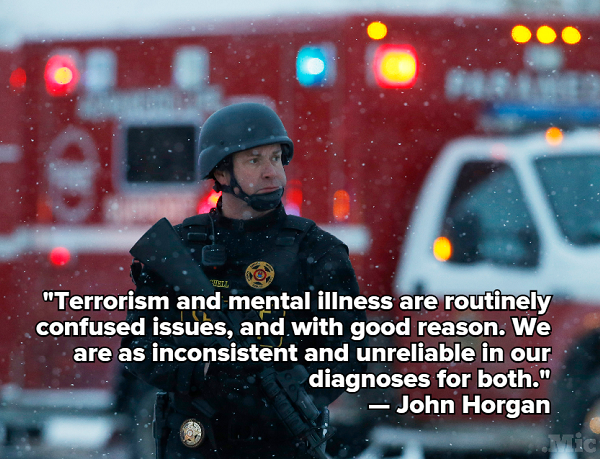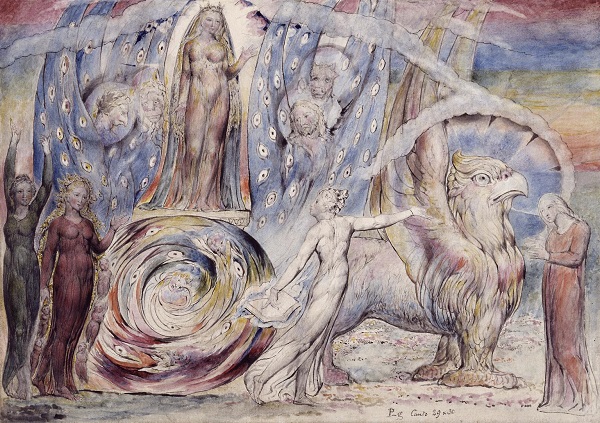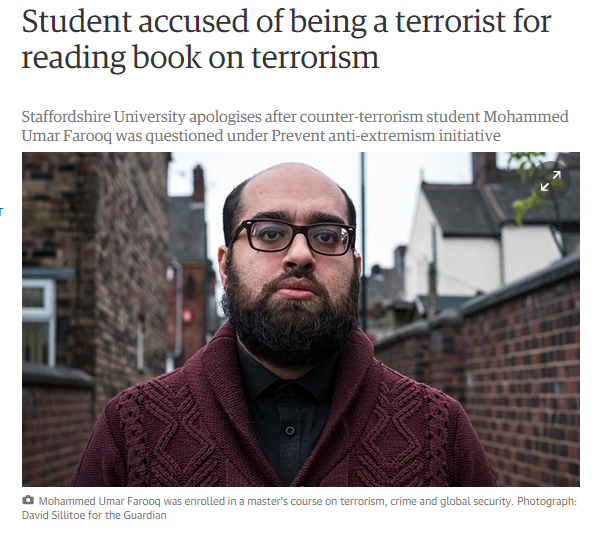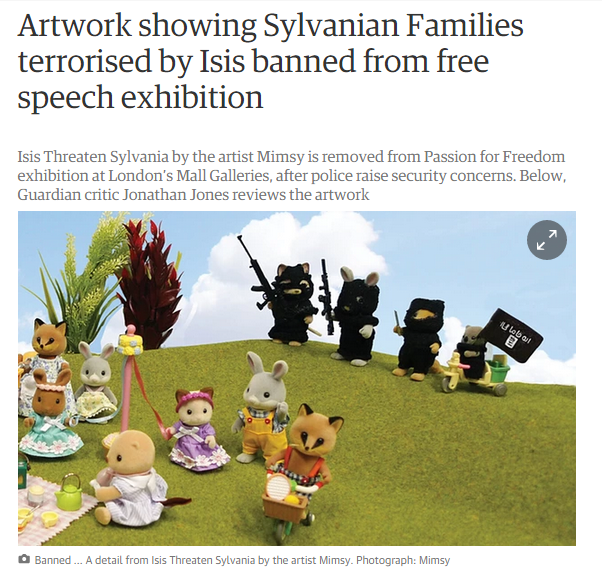[ by Charles Cameron — Robert Dear, a crazed? apocalyptic? Christian? terorist? — & what of William Blake? ]
.
John Horgan commenting on Robert Dear:

**
Apocalyptic? Here’s Richard Faussett, For Robert Dear, Religion and Rage Before Planned Parenthood Attack, in the NYT today
In a sworn affidavit as part of her divorce case, Ms. Micheau described Mr. Dear as a serial philanderer and a problem gambler, a man who kicked her, beat her head against the floor and fathered two children with other women while they were together. He found excuses for his transgressions, she said, in his idiosyncratic views on Christian eschatology and the nature of salvation.
“He claims to be a Christian and is extremely evangelistic, but does not follow the Bible in his actions,” Ms. Micheau said in the court document. “He says that as long as he believes he will be saved, he can do whatever he pleases. He is obsessed with the world coming to an end.”
**
Was William Blake crazy?

In this month’s Literary Review, Nicholas Roe reviews Leo Damrosch, Eternity’s Sunrise: The Imaginative World of William Blake, and offers an anecdote about David Erdman, the editor of The Complete Poetry and Prose of William Blake and his psychologist wife:
I recall a conference twenty-five years ago at which the great scholar David Erdman was lecturing brilliantly on Blake’s poetry; in the audience his wife, Virginia, a distinguished clinical psychologist, leaned across to the person sitting next to her and observed, ‘I’ve never been able to convince David that Blake was completely mad.’
Terrorist?
The closest Blake came to terrorism was this, as reported in his Poetry Foundation bio:
Before Blake could leave Felpham and return to London, an incident occurred that was very disturbing to him and possibly even dangerous. Without Blake’s knowledge, his gardener had invited a soldier by the name of John Scofield into his garden to help with the work. Blake seeing the soldier and thinking he had no business being there promptly tossed him out. In a letter to Butts, Blake recalled the incident in detail:
I desired him, as politely as possible, to go out of the Garden; he made me an impertinent answer. I insisted on his leaving the Garden; he refused. I still persisted in desiring his departure; he then threaten’d to knock out my Eyes, with many abominable imprecations & with some contempt for my Person; it affronted my foolish Pride. I therefore took him by the Elbows & pushed him before me till I had got him out; there I intended to leave him, but he, turning about, put himself into a Posture of Defiance, threatening & swearing at me. I, perhaps foolishly & perhaps not, stepped out at the Gate, & putting aside his blows, took him again by the Elbows, &, keeping his back to me, pushed him forwards down the road about fifty yards–he all the while endeavouring to turn round & strike me, & raging & cursing, which drew out several neighbours….
What made this almost comic incident so serious was that the soldier swore before a magistrate that Blake had said “Damn the King” and had uttered seditious words. Blake denied the charge, but he was forced to post bail and appear in court.
Christian?
Theologian Thomas Altizer writes of Blake that “From the beginning, he rebelled against God, or against the God then present in Christendom” — perhaps thinking of Blake’s own words in The Everlasting Gospel:
THe vision of Christ that thou dost see
Is my vision’s greatest enemy.
Thine has a great hook nose like thine;
Mine has a snub nose like to mine.
Thine is the Friend of all Mankind;
Mine speaks in parables to the blind.
Thine loves the same world that mine hates;
Thy heaven doors are my hell gates.
Socrates taught what Meletus
Loath’d as a nation’s bitterest curse,
And Caiaphas was in his own mind
A benefactor to mankind.
Both read the Bible day and night,
But thou read’st black where I read white.
— and then calls him “the most radical of all modern Christian visionaries”, explaining that “no poet or seer before him had so profoundly sensed the cataclysmic collapse of the cosmos created by Western man” —
So yes, apocalyptic, too.
**
Terrorist? Christian? Muslim? Artist? Mystic? Poet? Blasphemer?
Words strain, TS Eliot wrote, Crack and sometimes break, under the burden / Under the tension, slip, slide, perish, / Decay with imprecision, will not stay in place, / Will not stay still.







